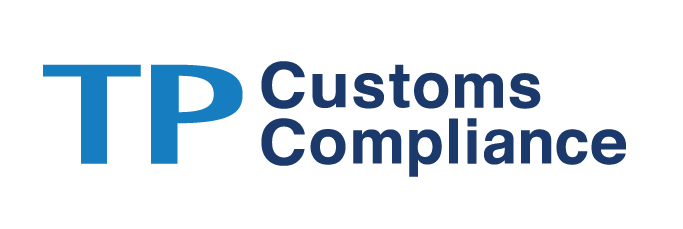By – Lic. Hector Torres.
As administrator of a Mexican e-company…
- Do you know the recent amendments made to the National Code of Criminal Law Procedures?
- Do you know the legal sanctions that you could face as a consequence of the commission of a crime in your company?
- Do you know the most common crimes in which companies could be involved?
- Do you know the sanctions that can be imposed on companies for the commission of crimes?
- Does your company have a Legal Compliance Program in order to minimize risks relating to criminal matters?
1. Do you know the recent amendments made to the National Code of Criminal Law Procedure? Mexico introduced in its legislation the criminal responsibility of companies (as it is popularly known) with the enforcement of the National Code of Criminal Procedures (“NCCP“) in March 2014. Additionally, in June 2016, significant changes were made to several of its articles, including Articles 421 to 425 which establish, among other things, the rules for criminal prosecution of legal entities. Likewise, these articles are the basic requirement for all companies to have, as part of their internal organizational structure, a “Legal Compliance Program”.
2. Do you know the legal sanctions that you could face as a consequence of the commission of a crime in your company?
As a result of the amendment to the NCCP regarding Corporate Criminal Liability, companies now also face the risk of being sanctioned for the commission of certain crimes, since the NCCP makes it possible to impute companies for actions committed by both their administrators and their employees if the company had not implemented adequate prevention measures. It is important to understand that the liability of a person for the commission of a crime does not exempt the company and vice versa. This means that both the individual and the company can be sanctioned for committing the same crime. In the case of administrators, although they may not be directly involved in the commission of a crime, the omission of certain actions or a lack of knowledge of the same, may at a given moment, constitute a criminal responsibility. Hence the importance of being familiar with the implementation of a Legal Compliance Program, it is monitoring, and follow-up.
3. Do you know the most common crimes that companies could be involved in?
Regardless of academic classifications, crimes involving companies, are commonly classified for practical purposes as follows:
- Crimes committed in a company: those committed by employees or individuals who are part of a company, or by people who have nothing to do with it, but whose crimes affect it. In the commission of this type of crimes directly, the company is the injured party, that is, the offended or victim. Examples of such crimes include robbery, fraud, “abuso de confianza” breach of trust, damage to property, sabotage, drug trafficking, industrial property offenses, bank offenses, sexual offenses, etc.
- Corporate crimes: Among these crimes, there are two subcategories, those in which (x), are originated as a consequence of an action or an omission by employees or officials in the exercise of their duties, (example a fire or explosion) or environmental offenses (an emission leak, illegal disposal of hazardous waste), tax, administrative or economic damage; or, (y) those crimes where a company is used as a vehicle to commit a crime, such as companies operating with illicit capital, or as “facades” to launder money, or entities in the financial sector that are used for disposal of assets acquired with money from drug trafficking or illicit activities.
4. What are the sanctions that can be imposed on companies for committing crimes?
Regardless of the criminal law sanctions for which a given individual could be responsible, sanctions for companies held accountable for committing crimes include, among others: suspension of their activities; closure of their premises and establishments; prohibition to carry out future activities in the same year which the offense was committed or participated in its commission; temporary disqualification and the suspension of rights to participate directly or indirectly tendering procedures, or contracting with the public sector or government; judicial intervention to safeguard the rights of workers or third-party creditors; confiscation of financial instruments, assets or products derived from the crime; public reprimand; and perhaps the most damaging, order the dissolution of the company.
5. Does your company have a Legal Compliance Program in order to minimize risks relating to criminal matters?
Regardless of other measures, companies might be to minimize their risks, the NCCP now requires companies to have control within their organization, to mitigate or exclude company’s probable criminal responsibility in the commission of crimes.
Due to today’s regulatory complexity, not only in criminal matters, but also in administrative matters, many companies aware of this need, have recently created within their organizations a new function: the compliance officer who is responsible for observing that all regulatory requirements are met in order to minimize risks and exposure of the company in the carrying out of illegal activities and commission of crimes.
Needless to based on the new responsibilities of companies, they are now required to have an instrument of management and crime prevention: A Legal Compliance Program.
This prevention instrument must contain, accordance with the size of the company, a set of internal policies that allow companies to prevent liability of this nature and, if necessary, to mitigate liability or guide it in times of crisis.
A good prevention instrument requires several steps, such as identifying the risks that a company is facing and the likelihood of their association with a commission of a crime; prevention, once the risks are known, designing and implementing a series of protocols and control procedures that reinforce the protection of the company; programs should take into account among other factors the size of the organization, and include policies to promote a culture of legality.
The monitoring, implementation, detection, and effectiveness of the controls should be supervised by qualified personnel, and with periodic audits; it should also include a resolutions mechanism and follow-up procedures for crisis cases, both inside companies and outside follow-up with the applicable authorities.
We invite you to determine whether if your company should take measures for the prevention and management of legal risk, as well as to review its corporate governance. To know if it has the protocols, manuals of operation and procedures that allow them, among other things: to review the responsibilities of its administrators, officers, operators, and agents, in addition to the internal processes that will help minimize the risk of committing crimes or activities that may be considered illegal. TP Legal has a team of professionals who can assist you in this task if you deem it convenient.
Leobardo Tenorio-Malof | ltenorio@tplegal.net
Héctor Torres-López | htorres@tplegal.net
Alejandro Pedrín | apedrin@tplegal.net
Mauricio Tortolero | mtortolero@tplegal.net
Daniel Gancz-Kahan | dgancz@tplegal.net



